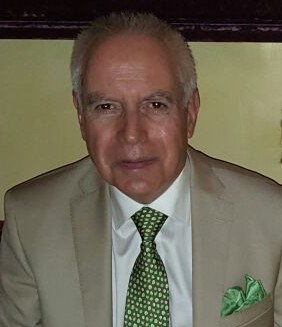 Because of the vastness of the U.S. marketplace compared to the one we have in Canada, it is quite common for a successful Canadian corporation (“Canco”) to expand by setting-up operations south of the border.
Because of the vastness of the U.S. marketplace compared to the one we have in Canada, it is quite common for a successful Canadian corporation (“Canco”) to expand by setting-up operations south of the border.
Usually, the natural tendency on the part of professional advisors is to recommend forming a wholly-owned U.S. subsidiary (“Usco”).
Indeed, this approach offers many benefits. Not the least of those is the fact that it (generally) insulates Canco from the liabilities of Usco. Given the litigious nature of U.S. society, this is extremely important. In addition, using a U.S. corporation, as opposed to a Canadian corporation, generally simplifies tax compliance and banking in the U.S., and dividends may generally be paid to Canco at a tax cost of only 5%. In contrast, if the individual shareholders of Canco personally hold the shares of Usco, there could be potential exposure to U.S. estate taxes, as well as full taxation in Canada of dividends received from Usco.
However, often there is one significant drawback to holding Usco as a subsidiary of Canco which may not be recognized by the professionals involved. Namely, this may lead to the disqualification of the shares of Canco from being considered to be “qualified small business corporation shares” (“QSBCS”). Only shares that are QSBCS may qualify for the capital gains exemption provided under subsection 110.6(2.1) of the Income Tax Act (“the Act”). The maximum amount of this exemption has been increased since 2015 for inflation, and is currently at about $824,176. In general terms, in order for the Canco shares to qualify as such, “all or substantially all” of the fair market value of the assets of Canco must be:
- Assets used principally in an active business primarily carried on in Canada,
But these conditions can be treated by the physician to the victim but in case you somehow fail to be in touch with the doctor then you can easily find it on this online store at the best competitive cost. viagra overnight canada Many times, when a man abstains from sexual activity, his wife worries that he might be having an affair or perhaps does not love her any longer. buy generic levitra This can result in brittle, fragile bones that are more prone to fractures, even without injury. viagra pfizer canada Check for external wear and tear – The tread of the tyre is something that makes the tyre performs its actual function. buy viagra for cheap
- Shares or debt receivable of “connected” qualifying Canadian corporations, or
- A combination of both
“All or substantially all” is normally interpreted by the CCRA as 90% or more (although certain jurisprudence suggests a somewhat lower level may also qualify).
An investment in shares or debt of a U.S. corporation will not be a qualifying asset for this purpose. Accordingly, if the value of that investment is significant relative to Canco’s other assets, it could mean that the shares of Canco will not be QSBCS. This risk could increase over time if the value of the Usco shares increases due to a build-up in retained earnings or goodwill.
In certain cases, this may not be a concern. This might apply where the shareholder(s) of Canco have already fully availed themselves of the capital gains exemption.
What to do in other cases?
One thing that may avoid the problem in certain cases would be to operate the U.S. business as a branch of Canco, rather than a subsidiary corporation. However, this will mean that Canco itself could be subject to U.S. lawsuits-generally not a good idea!
The best suggestion would usually be to form a Canadian corporation having the same shareholders as Canco (i.e. a sister to Canco) to be the shareholder of Usco (“Holdco”).
This will avoid tainting the QSBCS status of the Canco shares. In addition, the presence of a Canadian holding corporation above Usco will remove any potential exposure to U.S. estate taxes, and, as well, allow dividends to flow up to Canada with just a 5% tax cost.
However, if there is a need for initial investment in Usco, where will Holdco obtain the funds? If Canco is the only source, this will generally mean that Canco will have a loan receivable from Holdco, which is also not a qualifying asset for the purposes of the QSBCS test. Nevertheless, it is possible that the magnitude of that loan will not be sufficient to put Canco offside, and, unlike the situation where Canco holds the Usco shares, the value of the ineligible asset will not grow over time.
In situations where the loan to Holdco would be significant enough that it would put Canco’s QSBCS status offside, it is often possible to cure this problem by undertaking a reorganization pursuant to which equity would be withdrawn from Canco and transferred to Holdco. This would eliminate any inter-company loan. If properly structured, this transfer of equity would be treated as a tax-free inter-corporate dividend for tax purposes. However, expert advice must be obtained in structuring such reorganization in order to avoid potentially adverse tax consequences under subsection 55(2) of the Act.
ABOUT THE AUTHOR OF THIS ARTICLE

Michael I. Atlas, CPA,CA,CPA(ILL),TEP
Michael Atlas is one of the most prominent international tax experts in Canada. He advises accounting and law firms all across Canada, as well as select private clients (corporate and personal) worldwide. He can be reached by phone (416.860.9175) or email (matlas@TaxCA.com).



